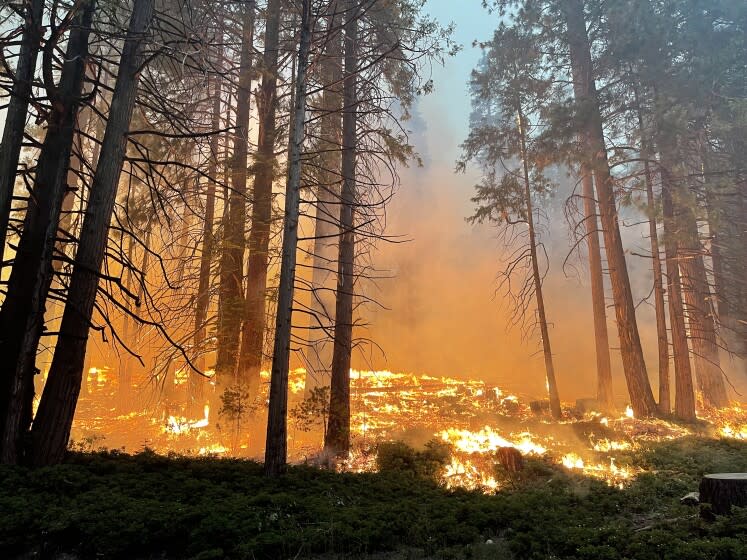Letters to the Editor: Individual climate action isn't enough to save our forests. Lawmakers must act

To the editor: It is shocking to think of our national parks and other wildlands being decimated by these fires that are increasing in intensity, frequency and size due to global warming. And of course the threats to human lives and property are increasing as well, leading to massive evacuations. ("Yosemite's sequoias survived the latest wildfire. Not all national parks will be so lucky," Opinion, July 25)
It is equally shocking to think of how air pollution due to fossil fuel use is killing close to 8 million people every year, according to research by Harvard University scientists. And this number is from prior to the increasing wildfires, so the effects on human health related to air pollution directly or indirectly related to fossil fuel use are certainly greater than prior estimates and will increase.
And, of course, we are also endangering planetary stability and human survival.
When will we wake up to this reality and stop making minor changes and really take action? Individuals must do all we can to reduce our carbon footprint or, better yet, become carbon neutral. We must also demand action from our representatives.
If we don't, it will be too little, too late.
Joyce Waterhouse, Pasadena
..
To the editor: Professor Char Miller seems to believe that protecting our giant sequoias with sprinklers and other means will ultimately be futile in light of climate change. That may be, but should we just give up?
Forty years ago, California condors faced imminent extinction. Environmentalists and scientists intervened and brought the California condor back from the brink. Today, the condor population is about 550, up from 27 in the wild in 1987.
What would have happened if we had given up?
The simple truth is, due to the severity of climate change and some 80 years of suppressing every fire that broke out, wildfires now are much more likely to "crown" and destroy an entire forest.
In Yosemite's Mariposa grove of giant sequoias, for example, the National Park Service has for many years cleared the forest of overgrowth and protected the trees through drastic measures in times of fire. That practice in some part probably saved many sequoias during recent fires.
In the last five years, we have lost an estimated 20% of all sequoias to fire. That is an unsustainable number. We have a responsibility to do everything we can to protect our precious natural resources for future generations.
Lawrence Levy, Winnetka
This story originally appeared in Los Angeles Times.

